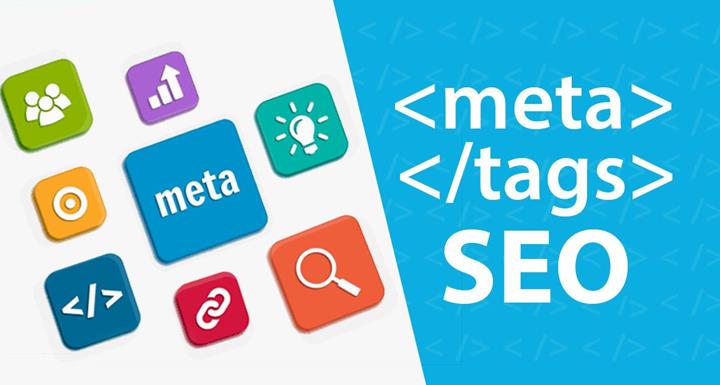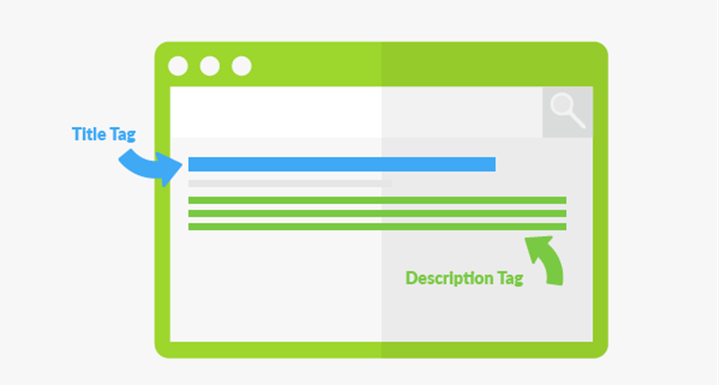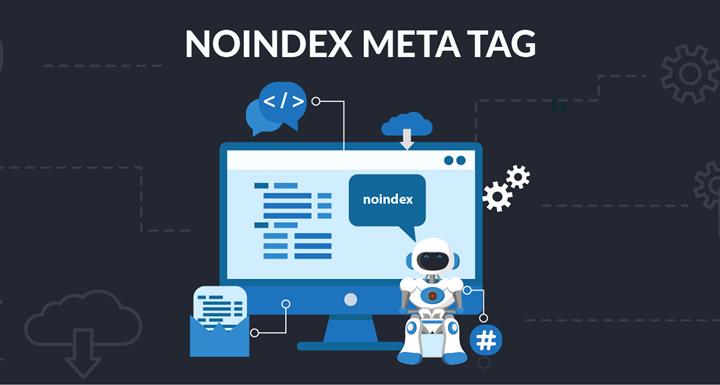Before we get into explaining why Meta Tags are so relevant for your website’s SEO efforts it’s important that we get the concept clear so everyone knows exactly how to take advantage of this element.
What Is A Meta Tag
A meta tag is a piece of text that describes the particular content of a webpage. These snippets of text are not visible on the webpage, you can only see them by looking at the page’s code.
The concept of the meta tag isn’t that far from the concept of Tag that we’ve learned from Blog culture: small descriptions of content that help web search engines know what your website is talking about.
Actually, the only big difference is that you can see regular tags, like the ones on a blog post. Meta tags are not visible in plain sight. Meta tags are only visible in HTML, meaning that only web search engines and people with code knowledge can see meta tags.
In a nutshell, meta tags are data about the data that is located on your webpage.
How Can Meta Tags Help SEO
It's important to mention that even though meta tags do help SEO, not all meta tags help SEO. By having a clear understanding of the type of meta tags that can actually help your SEO efforts, you can create better action plans to improve or optimise your online positioning.

Types Of Meta Tags
There are four main types of meta tags which are all SEO relevant. Of course, with time, some of them are not as useful as they were in the past. Some others can be helpful sometimes and finally, there’s a type of meta tag that is highly likely to increase your website’s traffic.
Meta Description Attribute: A short description of the page.
Title Tag: This makes reference to the text you see on top of your browser. For web search engines, this is the title of your webpage.
Meta Keywords Attribute: A group of webpage relevant keywords
Meta Robots Attribute: These meta tags provide directions to search engine crawlers - also called Bots - and tell them what to do with the page in question.
Meta Description Attribute:
This is a very useful meta tag. It tells web search engines the purpose of your page and what it’s about. Now, the description tag is not always visible when you google something, but it usually looks like a fragment from the page.
Google has also stated that including keywords in meta descriptions doesn’t have an effect in your rankings, but if you have a nice, compelling meta description it may make visitors click on your site, especially if the meta description includes the keywords they may be looking for.

Title Tag:
They may not seem like it, but title tags are crucial for SEO. Not just because they are visible to the average web visitor but they have a strong impact on web search engine logic. You can see them clearly on landing pages or at the top of your browser.
This type of tag helps when a website wants to give their page a primary title in an effort to simplify an SEO process.
Meta Keywords Attribute:
This is a type of meta tag that is no longer in use, but back in the day it was pretty powerful. The reason why they got devalued was that some marketers in a desperate attempt to steal traffic from the most popular websites started to insert unrelated words to the code of their pages. Google realised what these marketers were doing and decided to remove meta keywords from their ranking algorithm altogether.

Meta Robots Attribute:
This attribute allows websites to tell the search engine bots what to do with your page. There are two variations:
index/noindex: This is what tells the web search engine bot whether to show your website in the result pages (SERPs) or not.
follow/nofollow: This variation tells the web search engines what to do with your website’s links
Websites can definitely take advantage of meta tags for their SEO efforts. The only requirement is to have the knowledge to know how and when to implement them.
The learning curve for any SEO endeavour requires time and dedication and sometimes company owners must focus only on making their business grow, not on optimising a website’s content through the use of SEO-oriented meta tags.
For this reason, we strongly believe that companies should invest in the expertise and SEO knowledge of this fantastic team who can truly take your website’s online positioning to the place it deserves, so your company stays competitive and relevant to the online world.
SUMMARY
Place yourself in the customer's shoes, try to see thing from their perspective. By achieving that you´ll have a clear and bright vision of what your audience needs and how to provide that for them. Once you integrate those elements into your website, you´ll see the payout.